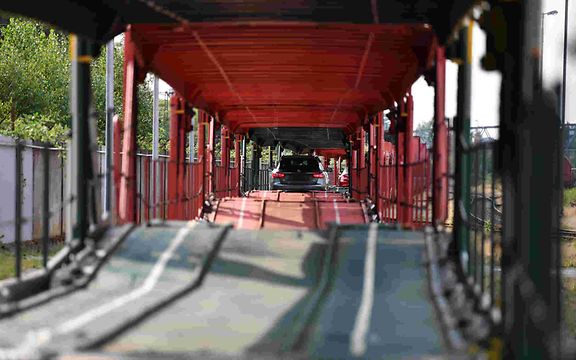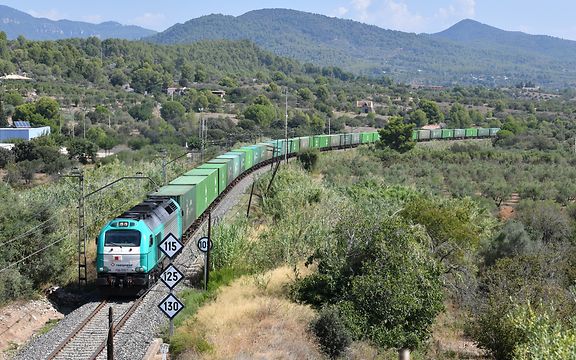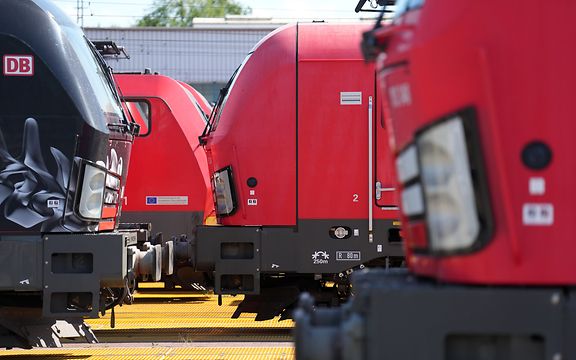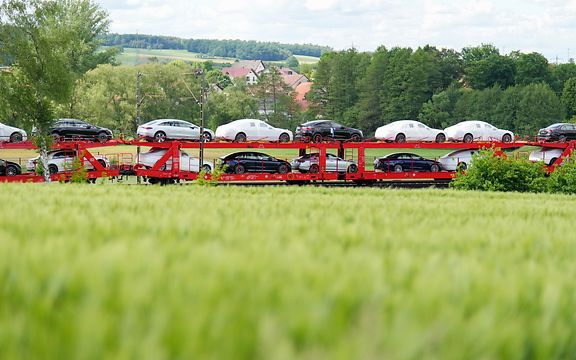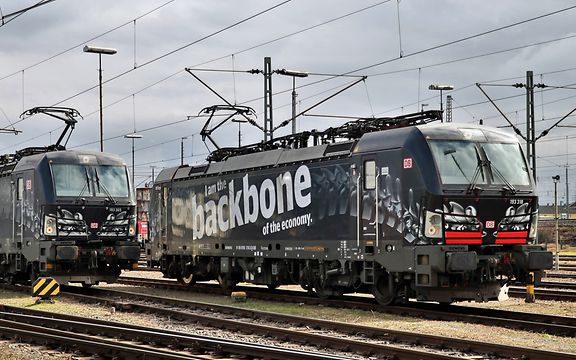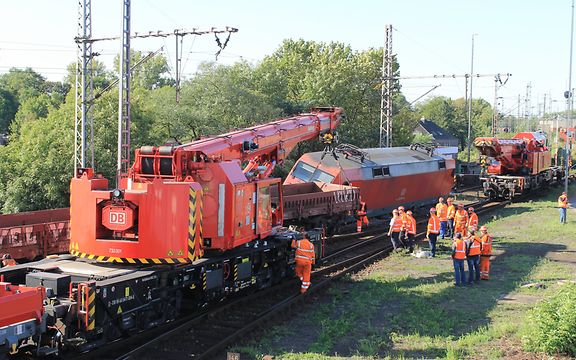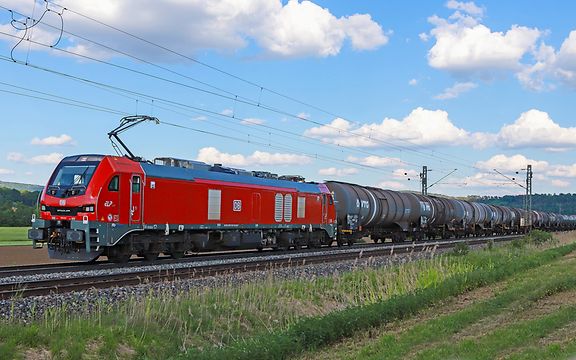Ford: Vehicle transports across Europe
Since the autumn of 2019, DB Cargo Logistics has transported Ford vehicles from Romania all across Europe.
Over a dozen block trains leave the Ford plant in Craiova, Romania, each week, travelling to destinations up to 2,000 kilometres away. The city in Wallachia, in the southwestern part of the country, is an important site in Europe's car manufacturing sector and has a long tradition. Ford produces its EcoSport and Puma models at the plant, along with engines. Some of the vehicles then head to Constanta on the Black Sea. They are bound for destinations including the Iberian Peninsula. Other trains take cars to Venice, serving customers in Italy.
Annual Ford vehicle volumes reach six figuresBut the majority of wagons travel through Hungary and Austria, onward to the German city of Neuss, the Belgian city of Antwerp, or the Dutch city of Vlissingen, which is home to Ford's large hub for the British market. "Much about this contract makes it unique," said Thomas Pries, Account Manager for Ford in the Finished Vehicles segment at DB Cargo Logistics. The wagons that DB uses are one factor here. They're often too low for many of the transports for other carmakers, but they're just right for the models being transported from Craiova. DB Cargo Logistics maintains some 400 Type 553 wagons to be able to transport such a large volume of cars – in the high six-figure range – each year. "The trains destined for northern Europe are nearly 700 metres long," says Alexia Flores, the project manager at DB Cargo Logistics who is responsible for designing and implementing transport. She also provides customer support for Ford. According to her, "It wasn't easy to find the right routes."
DB also succeeded in utilising more of the wagons’ capacity. DB Cargo Logistics and its equipment specialists were able to work out a solution for loading each wagon with twelve rather than the previous eleven vehicles, boosting capacity by around ten percent.

Ford has once more invested heavily in its production facilities for the new Puma. Copyright: Ford Mediacenter
Finished vehicle logistics and a flexible transport conceptFinally, DB Cargo was able to land additional services. It not only transports vehicles; it is also responsible for loading them. Until September of 2019, when DB Cargo Romania took over the task, Ford employees managed finished vehicle logistics at the plant. The company hired and trained a team of almost 30 people in Craiova to get the job done.
The flexible transport concept means that planning can account for any fluctuations in the sales markets, and trains can be adjusted as needed based on volume volatility. Running all the trains to northern Europe through a central hub in Bochum makes it possible. "Depending on our needs, we can switch between the three destinations of Antwerp, Neuss and Vlissingen," says Flores. While the total number of trains to the hub remains largely constant on a weekly basis, the number of trains to specific destinations can vary. When the need arises, it is also possible to transport more than the quantities agreed upon.
Through Europe in five daysIt takes the wagons up to five days to travel halfway across Europe: "Right now, we leave 24 hours before the scheduled departure time to allow a buffer for the border crossing between Romania and Hungary," says Pries. To protect the freight during stops and traffic jams, DB Cargo Logistics has also hired its own security guards in Romania and Hungary. It was also important to Ford to have some flexibility around departure and to have wagons ready at all times – with a few wagons to spare. There is plenty of room since Ford had already laid the groundwork. "With five tracks, the plant is perfectly set up for rail," says Pries.
